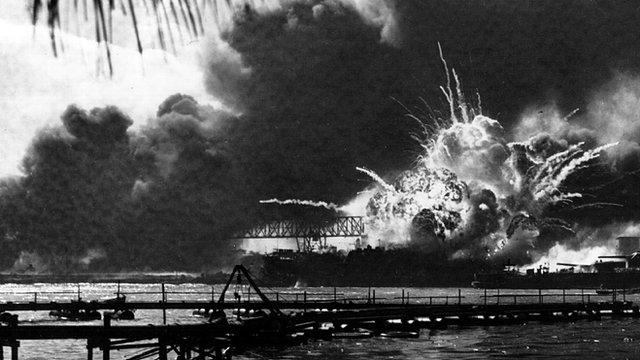Doris Miller: US Navy aircraft carrier to honour black sailor
- Published
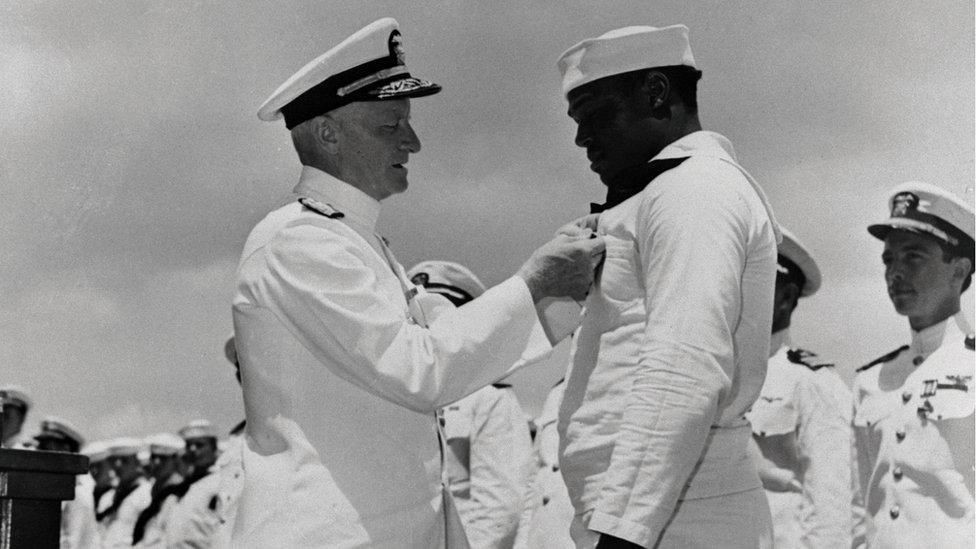
Doris Miller, right, was hailed as one of the first US heroes of World War II
The US Navy is to name its new aircraft carrier after a black sailor who fought in World War II.
Doris Miller earned the Navy Cross for his actions during the Japanese attack on Hawaii's Pearl Harbor in 1941.
At the time, the US military was strictly segregated on racial grounds. Miller became an icon for black Americans in the conflict.
Naming the ship after the heroic sailor comes more than 78 years after the events that made his name.
It will be the first time an aircraft carrier has been named after an African American. Until now, they have been named after famous battles, military leaders and US presidents.
The official announcement is scheduled for Monday - Martin Luther King Jr's birthday - at Pearl Harbor. The bay is the site of a massive US naval station and the base of the country's Pacific Fleet.
Who was Doris Miller?
Miller was born in 1919 in Texas, the third of four sons. He was named Doris, as his mother had thought she was having a girl, but often went by the nickname "Dorie".
Jim Crow laws - a system of policies that denied black Americans their rights and segregated them from their white neighbours - dominated in the south at the time. After dropping out of high school and struggling to find work, Miller joined the Navy in 1939 at the age of 20.
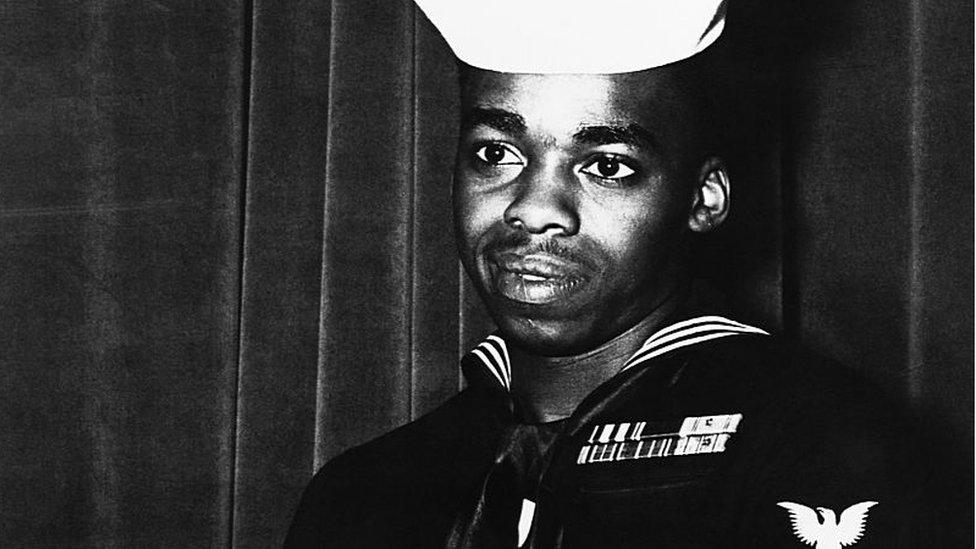
Doris Miller was made a mess attendant in the segregated US Navy
"Navy policy at that time limited blacks to those duties that were manual, that they thought didn't require a whole lot of intellect," historian Regina Akers told CBS News, external.
After training, Miller was made a mess attendant - someone who took care of the white officers - and in 1940 was assigned to the battleship West Virginia.
He was sorting laundry on the ship one morning when a Japanese torpedo slammed into the vessel.
It was the first of nine torpedoes which would hit and sink the West Virginia on 7 December 1941. The Japanese surprise attack on Pearl Harbor killed more than 2,300 people and brought the US into World War II.
How the BBC covered the Pearl Harbor attack in 1941

Miller ran to help his fellow sailors. He first moved his mortally wounded captain to shelter, before manning an anti-aircraft gun - strictly against regulations, as a black sailor - and firing back at the hundreds of Japanese aircraft overhead.
"It wasn't hard. I just pulled the trigger and she worked fine," he said afterwards, according to the Naval History and Heritage Command website, external.
"I think I got one of those [Japanese] planes. They were diving pretty close to us."
He fired until he ran out of ammunition, before helping his wounded shipmates. He abandoned ship with the survivors as the West Virginia sank to the bottom of the harbour.
Witness: Pearl Harbour
In January 1942, the US Navy announced a list of commendations for US servicemen on Pearl Harbor - including one for an unnamed black man.
Two months later, the Pittsburgh Courier revealed the sailor to be Doris Miller. "No longer is his name unknown," the report read.
Soon after, a senator and a congressman launched separate bills in both houses of Congress calling for Miller to receive the Medal of Honor - the highest military honour in the US. African American rights groups also campaigned for Miller to get an award for his actions, while the media hailed him as one of the "first US heroes" of the war.
Other groups however campaigned against any recognition for Miller on the grounds of his race.
In May that year, President Franklin Roosevelt ignored the controversy and awarded him the Navy Cross - at the time the third highest honour awarded by the US Navy.
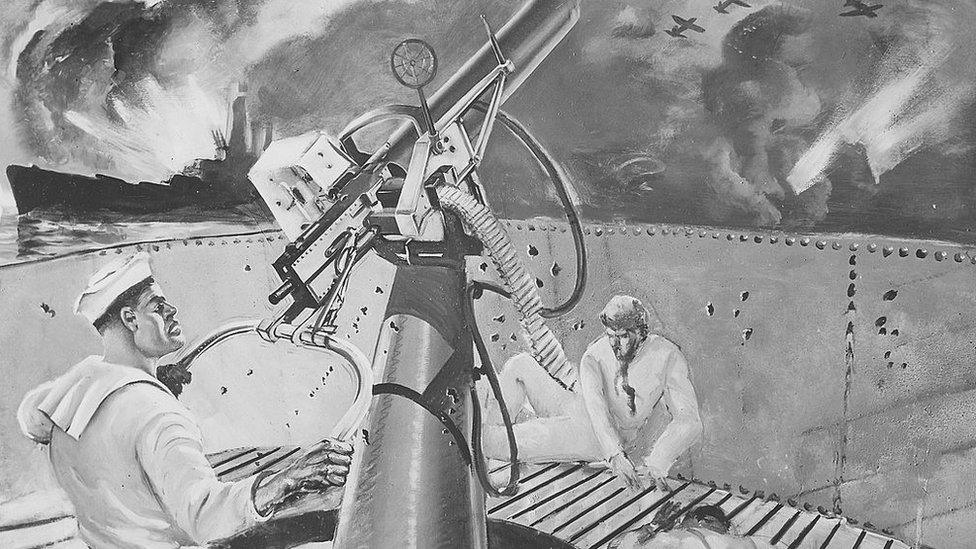
Murals, news reports and rights groups hailed Miller as one of the first US heroes of the war
Miller went on a speaking tour and became a nationwide celebrity, but returned to sea aboard the aircraft carrier Liscombe Bay. He was killed when the ship was sunk by a Japanese submarine in the Battle of Makin in November 1943.
But his legacy has lived on as one of the first African American heroes of World War II. Cuba Gooding Jr played the role of Doris Miller in the 2001 film Pearl Harbor, while Waco unveiled a statue of Miller in 2017.
Now a new aircraft carrier will be built and eventually launched in 2028 bearing Miller's name.
"It is tremendous," historian Regina Akers told CBS, saying the decision showed "that heroism is in no way limited by race, by gender, by background, by rank or rating."
- Published7 December 2016
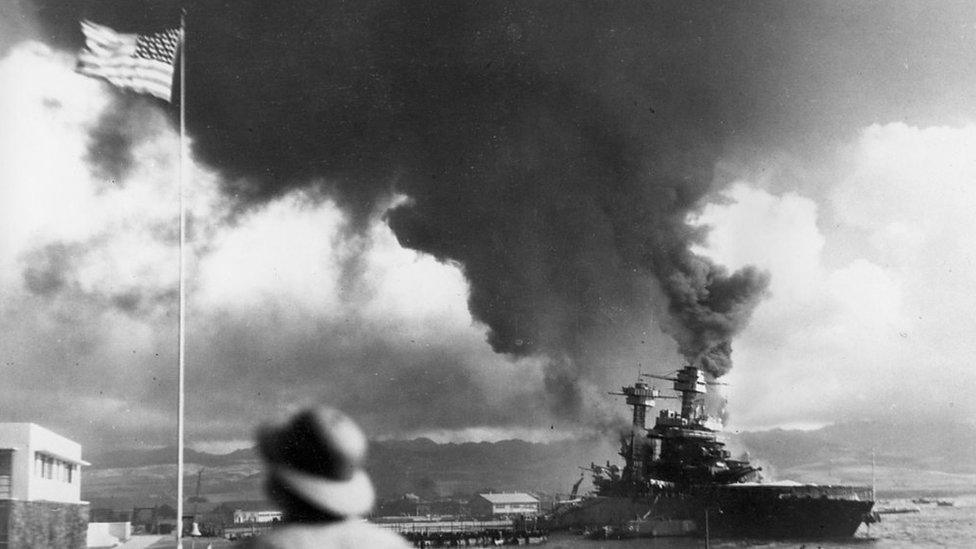
- Published26 December 2016
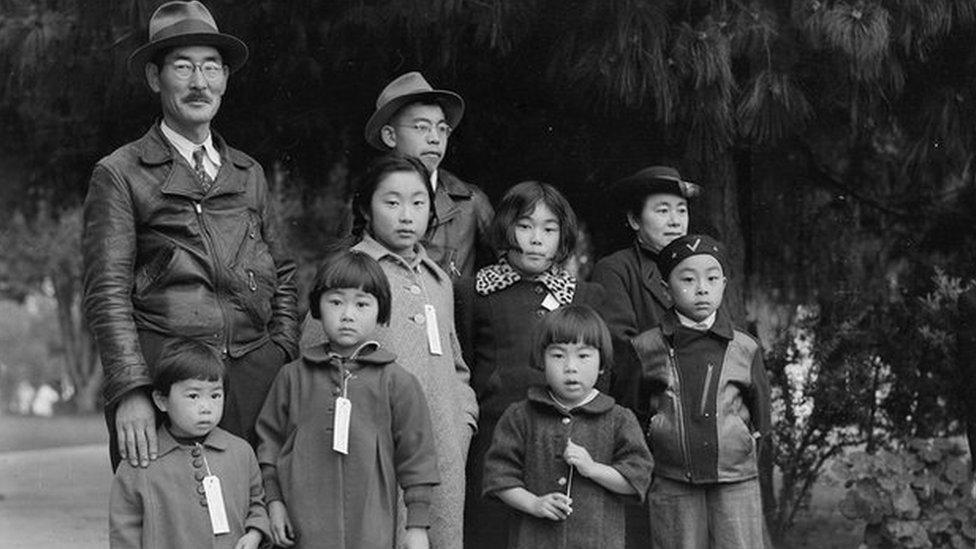
- Published25 November 2016

- Published17 May 2015
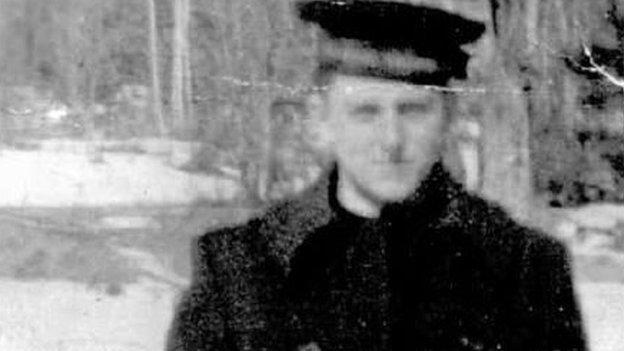
- Published2 December 2015
